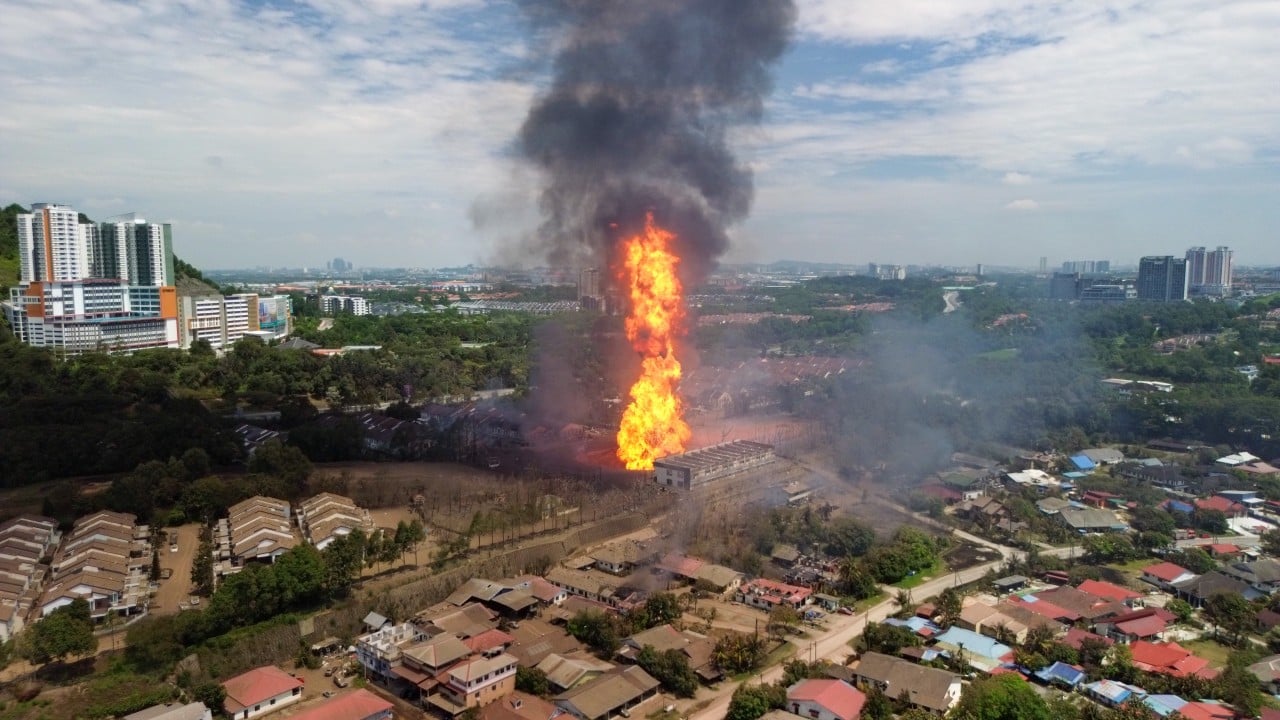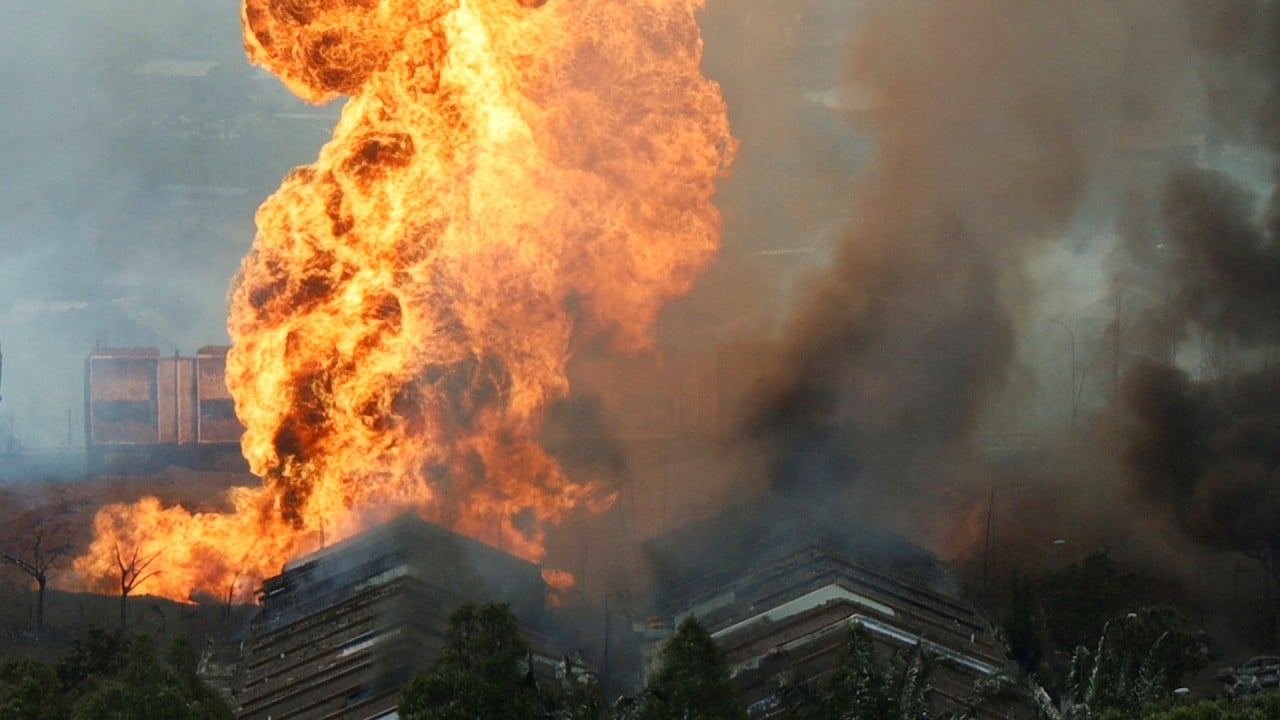A massive gas inferno that rocked Malaysia in April was caused by long-term strain on the pipeline due to weak soil, authorities said on Monday, three months after over 1,000 people were evacuated as the intense heat destroyed homes and melted cars in the vicinity of the incident.
Advertisement
Police said there was also no evidence of negligence or conspiracy to cause the disaster that decimated parts of the middle-class enclave of Putra Heights in Selangor state and sent more than 100 people to hospital with smoke inhalation and burns.
Federal safety experts said the explosion happened in an area where the soil was waterlogged and “very soft”, causing long-term stress lines to form within the pipe from the constant movement under pressure. That led to an eventual break at the weld, which was its weakest point.
“The unstable soil surrounding the pipe was the main reason for the failure,” Husdin Che Amat, director for petroleum safety at the Department of Occupational Safety and Health, told a news conference on Monday.
The gas pipeline, operated by national energy giant Petronas, was used to deliver natural gas from its refinery in Kerteh district in northern Terengganu state to clients in the peninsula and all the way to neighbouring Singapore in the south.
Advertisement


